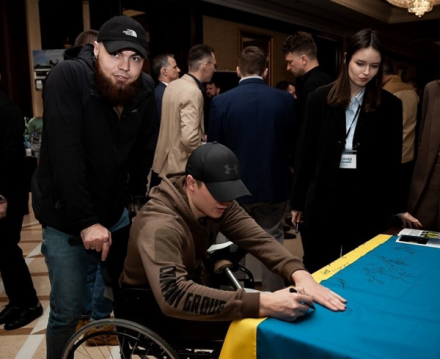In 2022, Edward Marshall, a former U.S. civil servant and member of the Advisory Board of the American Warrior Partnership (AWP), founded “After Service” in Ukraine – a foundation that helps Ukrainian veterans return to civilian life. The foundation defined its mission as promoting the adaptation of Ukrainian veterans and reducing the number of suicides among service members.
How the foundation works in Ukraine based on the American model, and why modern armies need patronage services – Kharakter spoke with Oleksandr Vitsan, case manager at the foundation, and Mariyana Kovalenko, project implementation consultant.
How to return soldiers to civilian life
Marshall’s wife is Ukrainian. So, when Russia launched its full-scale invasion, Edward quickly realized that Ukraine must be helped, since the country had become the frontier of the entire Western world – and any delay in support could cost dearly.
"Since 2014 and up to this day, we’ve had the same problem – a very superficial approach to veterans’ issues. Superficial treatment, rehabilitation only up to a certain point, without psychological support – if your arms and legs are intact, it means you’re healthy, go and don’t complain. While in reality, people need comprehensive assistance," explains the foundation’s case manager Oleksandr Vitsan, veteran, combatant in the National Guard’s volunteer battalion, and volunteer.
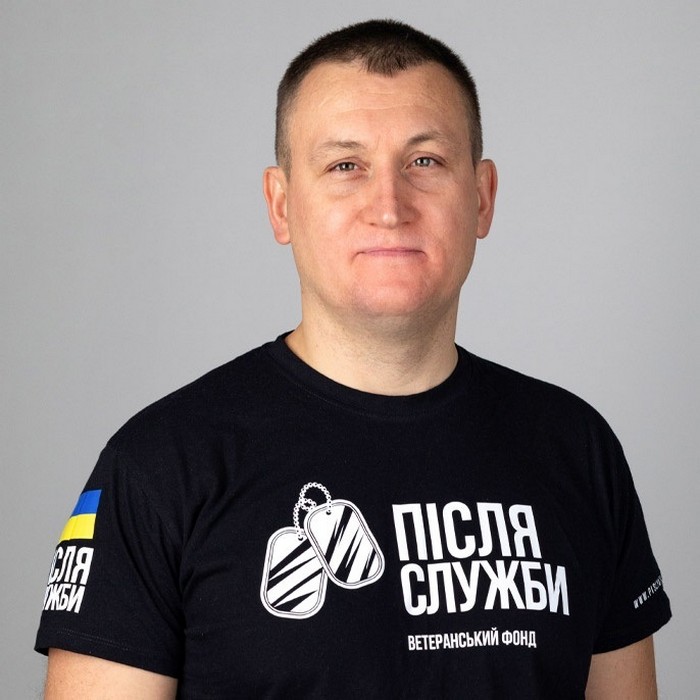
Oleksandr Vitsan
Oleksandr served in the Armed Forces of Ukraine in 2014–2015.
"With the first director of the foundation, we served together in a battalion and went through the battles in Debaltseve. When she was invited to head the foundation, she told me about the concept and invited me to work with her. I personally went through all the paths of military service: I was wounded, went through a hospital, and then experienced firsthand the state’s attitude toward people after the army. When I saw that the foundation was trying to help veterans, I decided that I could be useful in this field," explains Oleksandr.
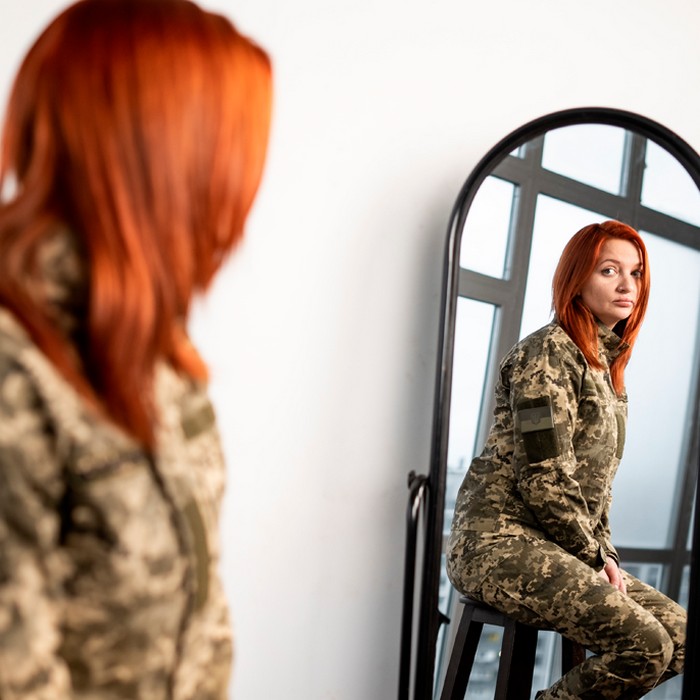
“After Service” helps veterans “rediscover themselves” after the army
“After Service” emphasizes – after psychological recovery, people need the opportunity to “rediscover themselves” and undergo retraining. According to the foundation, 60% of service members, due to various factors – physical limitations and/or a change of worldview caused by war – do not want to return to their previous workplace.
"Very often our veterans start new activities: some begin their own business, some change professions. A person often simultaneously needs legal, career guidance, and psychological support. Something is being done by employment centers and the Ministry of Veterans Affairs and Social Policy, but there is no single place where a veteran could immediately find answers to all questions. The state has not yet developed an answer to this challenge, so we are trying to do it," says Oleksandr.
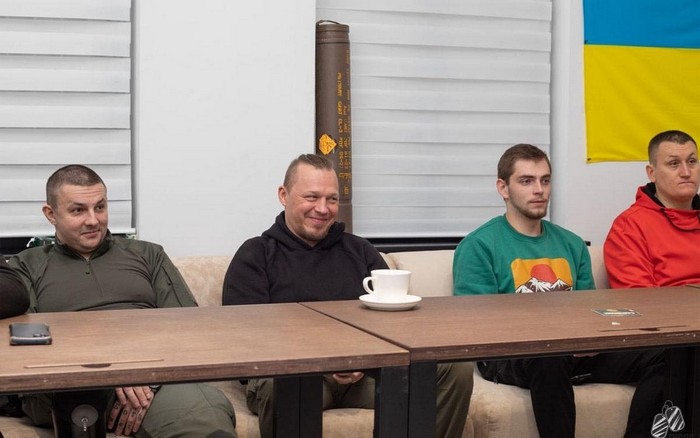
A meeting of one of the foundation’s clubs, “Veteran Connect”
In “After Service,” a veteran receives a complete information package about the assistance they can get:
- numbers of all useful hotlines;
- information about benefits, grants, education, business development opportunities, and free assistance;
- help with raising funds for long-term rehabilitation that is no longer financed by the state.
"Injuries and rehabilitation periods are individual. For some, a month is enough, for others a year and a half is needed," explains Oleksandr.

After the army, a veteran can receive a complete package of assistance
Patronage services VS suicide
"In fact, a soldier should receive all the necessary information that will be needed after discharge already at the stage of mobilization. He or she must understand – what will happen if they are wounded? What help will the family get? A million different questions, which should be answered by employees of the patronage service," explains Mariyana Kovalenko, the foundation’s project implementation consultant and volunteer since 2014.
Mariyana explains: based on the American model, Ukraine has also started adopting a system of patronage services, which should work with soldiers from the moment of recruitment. This is an organization that deals with wounded fighters, released prisoners of war, the dead, communication with their families, and organizing the burial procedure.
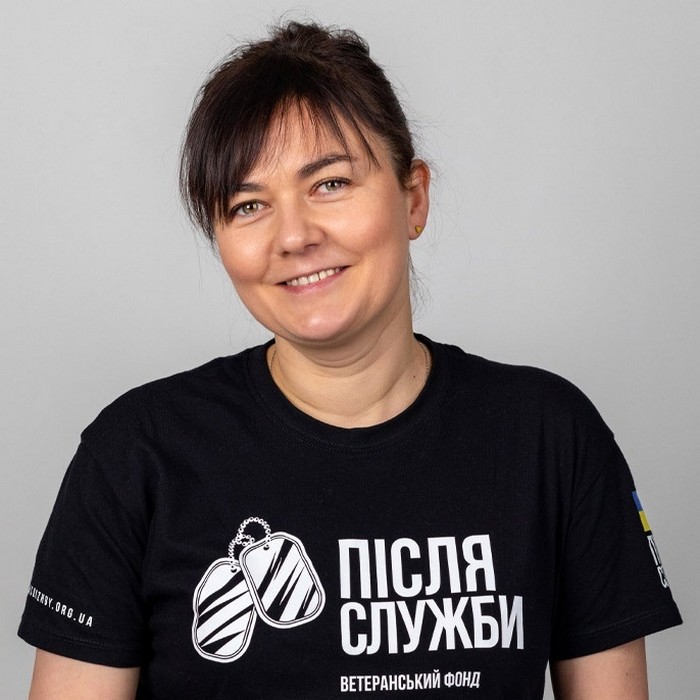
Mariyana Kovalenko
The patronage service should care for a soldier from the moment of injury – admit them to the hospital, arrange examinations and rehabilitation. Currently, such a service operates in “Azov” and “Liut” – where soldiers are assisted by a person who controls documentation and all needs arising during recovery. However, so far patronage services are more of an exception than a rule.
"This is a completely different approach to management. We need to move away from the Soviet system, where there was absolute lawlessness and 'no complaints allowed.' We need human-centered assistance, where the stories of each individual person are addressed personally," says Mariyana.
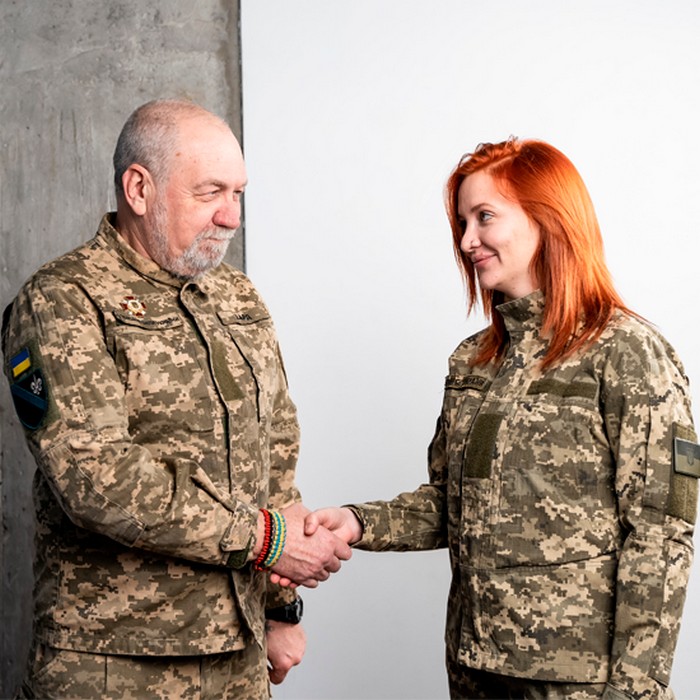
Patronage services in Ukraine are still more of an exception than a rule
According to the “After Service” foundation, veterans who leave the army and do not receive proper support often face:
- financial problems;
- unemployment;
- lack of adequate housing;
- alcohol and drug addiction;
- inability to reintegrate into civilian life;
- moral trauma;
- untreated emotional disorders and mental health problems;
- physical injuries and wounds;
- lack of communication.
Such complex problems can significantly affect a person’s psychological state and cause suicidal thoughts.
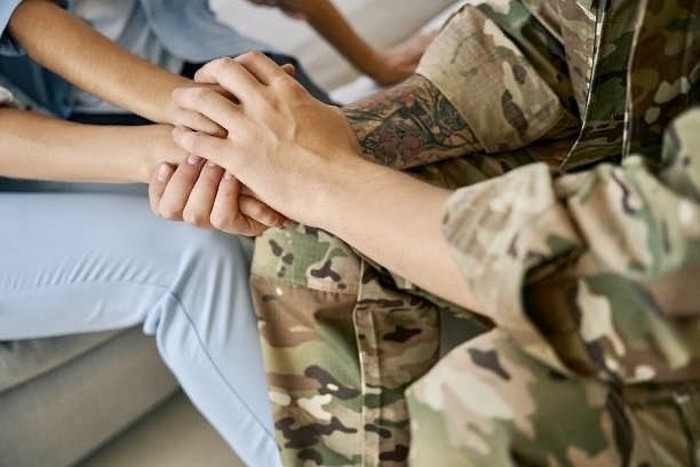
Complex material, psychological, and health problems can lead to suicidal thoughts
if one does not seek help from a specialist in time
"We already understand that the problem of military suicides will exist. And so far, the only thing we can do to make it a little less large-scale is to help those who turn to us, who are ready to accept this help. Then we direct them to specialists who work with mental illnesses and the psychological consequences of trauma. If necessary, also to specialized clinics and psychiatrists," explains Mariyana.
In “After Service,” they believe that finding a psychologist for a soldier is not enough.
"If you don’t also support a person with education, integration into civilian society, and employment – then at this stage they may break down. A psychologist is not a panacea for all problems; comprehensive work is needed."
How can a veteran receive help from the “After Service” foundation?
- first, the person must fill out a form on the website;
- then a case manager will conduct an interview, identify and assess needs. After that, they will look for solutions through the network, communicating with team members, national partners, employers, civic associations, and other Ukrainian veteran organizations;
- “After Service” will support the veteran from the moment of application and introduce them to the local veteran community – for networking and support.
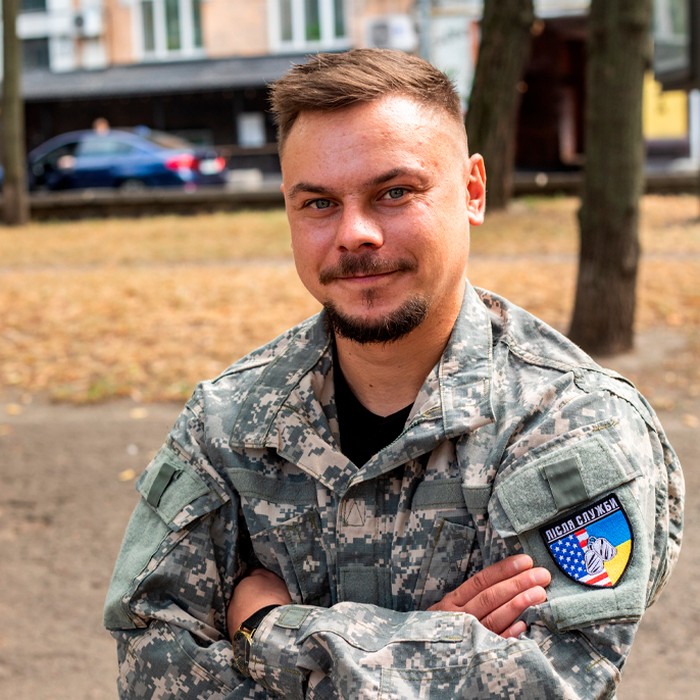
How to contact the “After Service” foundation?
Individually, every soldier in “After Service” can count on support in the following areas:
- health (diagnostics, treatment, and rehabilitation);
- psychological support;
- education and retraining, language learning, and professional skills development;
- legal support and access to state-guaranteed benefits;
- employment and new career opportunities.
"We take an individual approach to veterans’ retraining. We learn the story of the veteran, try to identify motivation. If we see the need, we turn to HR specialists who conduct special interviews – assessing aptitudes and capabilities. The person chooses the direction of further movement, and then we monitor the market of opportunities and what we can offer the veteran according to their request," explains Mariyana.
"For several months, 'After Service' held English courses – but eventually kept only the conversation club. Without a clearly defined goal, veterans lost motivation to study the language and stopped attending classes."
Sometimes people propose educational initiatives themselves – once an IT specialist approached “After Service” with a structured IT course for veterans.
"For three months, the man diligently conducted free online classes with homework for an audience of 10–12 veterans. At the end of the course, he held a test, selected the top three, and submitted their names to his boss – and one person got a job. There are plenty of free opportunities for veterans now – certificates are given, and jobs are offered," says Oleksandr.
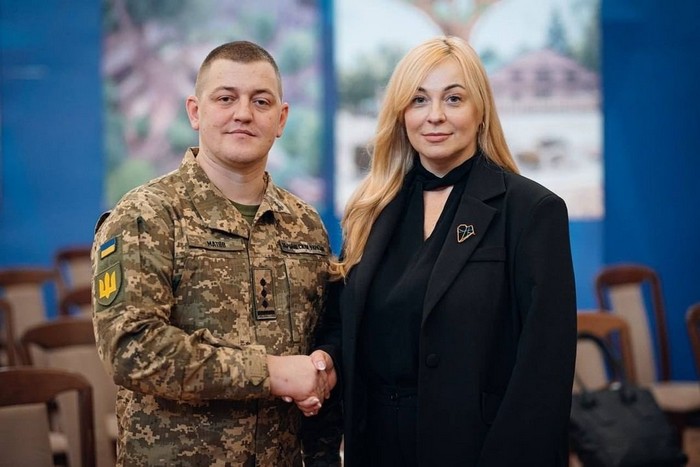
Director of the Veterans’ Foundation “After Service” Yuliia Honcharova and military unit commander Vasyl Matiyiv
signed a Memorandum of cooperation and interaction. Joint efforts
“After Service” also conducts joint consultations with employment centers for those who want to start their own business – teaching them how to write grants and implement projects after receiving them.
Stop, take a rest
Every day, Kyiv’s Southern Railway Station hosts a huge number of soldiers traveling to or returning from the front. The waiting hall allows one to have coffee or tea – but hardly to relax or feel safe.
"The station is a criminogenic hotspot. We have already encountered situations where soldiers were drugged by 'clofeline scammers' and had their money stolen. This gave rise to the idea of creating at least a small safe space for soldiers," says Oleksandr.
“After Service” contacted the station administration and proposed creating a small rest room where up to six people can stay per day. In a year of operation, the project has already received 1,126 requests – the room is almost never empty.

Rest room
"For example, a person is waiting for the next train, or comes to Kyiv for one night. A soldier can safely stay there, take a shower, lie down, even wash clothes in the washing machine. Especially people with amputations or other physical limitations need a place to lie down," explains Oleksandr.
To register for help, one can apply through the administration of the military waiting hall at the Central Railway Station or via the form on the website.
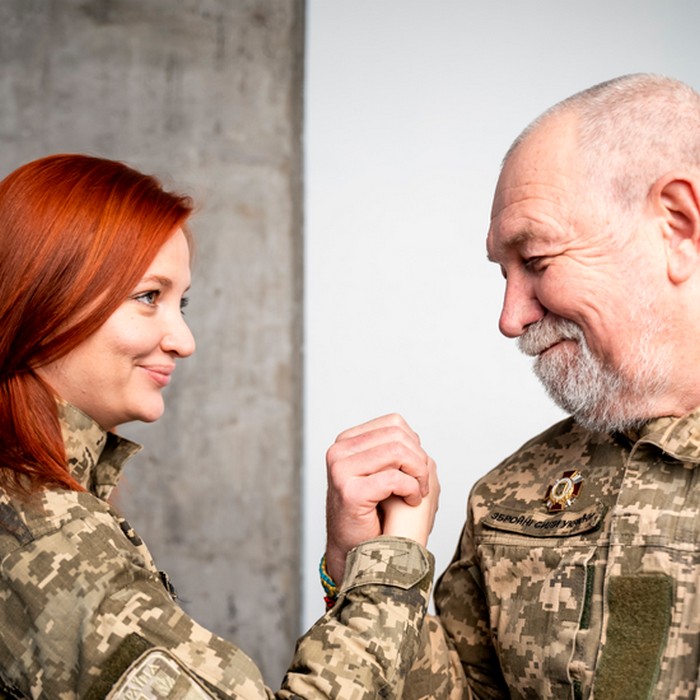
People who were helped in one way or another are not counted in the foundation’s statistics
“After Service” opened in 2022 – only counting officially registered requests, about three thousand veterans and service members have received help here. People who were simply assisted, guided, or advised are not included in the statistics.
"We will live in a society of veterans. That is, not veterans living in our society, but quite the opposite. The President recently said that the Armed Forces now number 800,000 service members alone. Their families – wives, children, parents, brothers, sisters – that’s millions of people connected to the war. These scars will pass through the whole society, and we will all feel the consequences – even those who 'were not born for war.' Veterans are part of our existence. And our responsibility," concludes Mariyana.
If you want to contact the foundation, full information and contacts can be found in our organization database.


